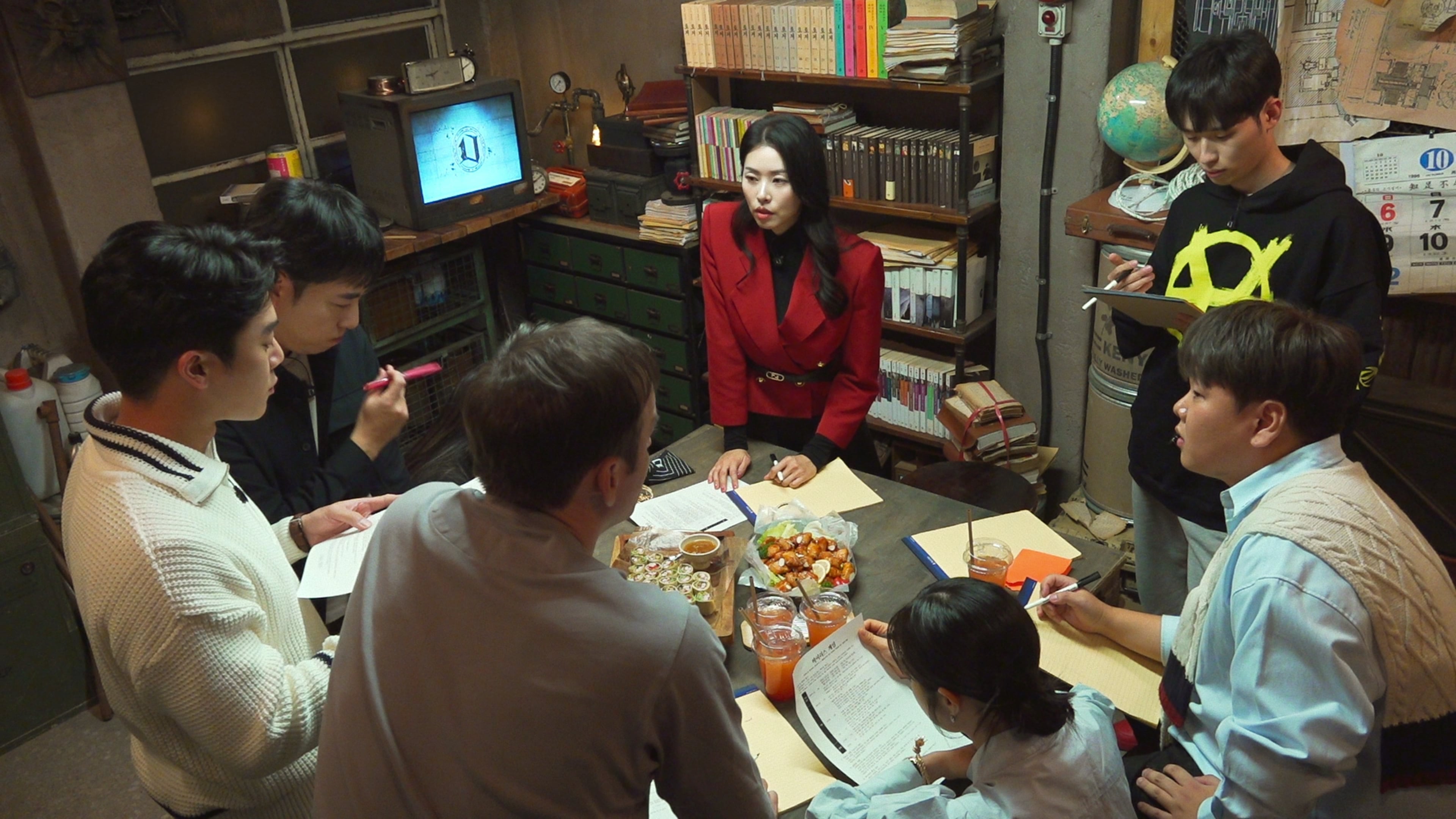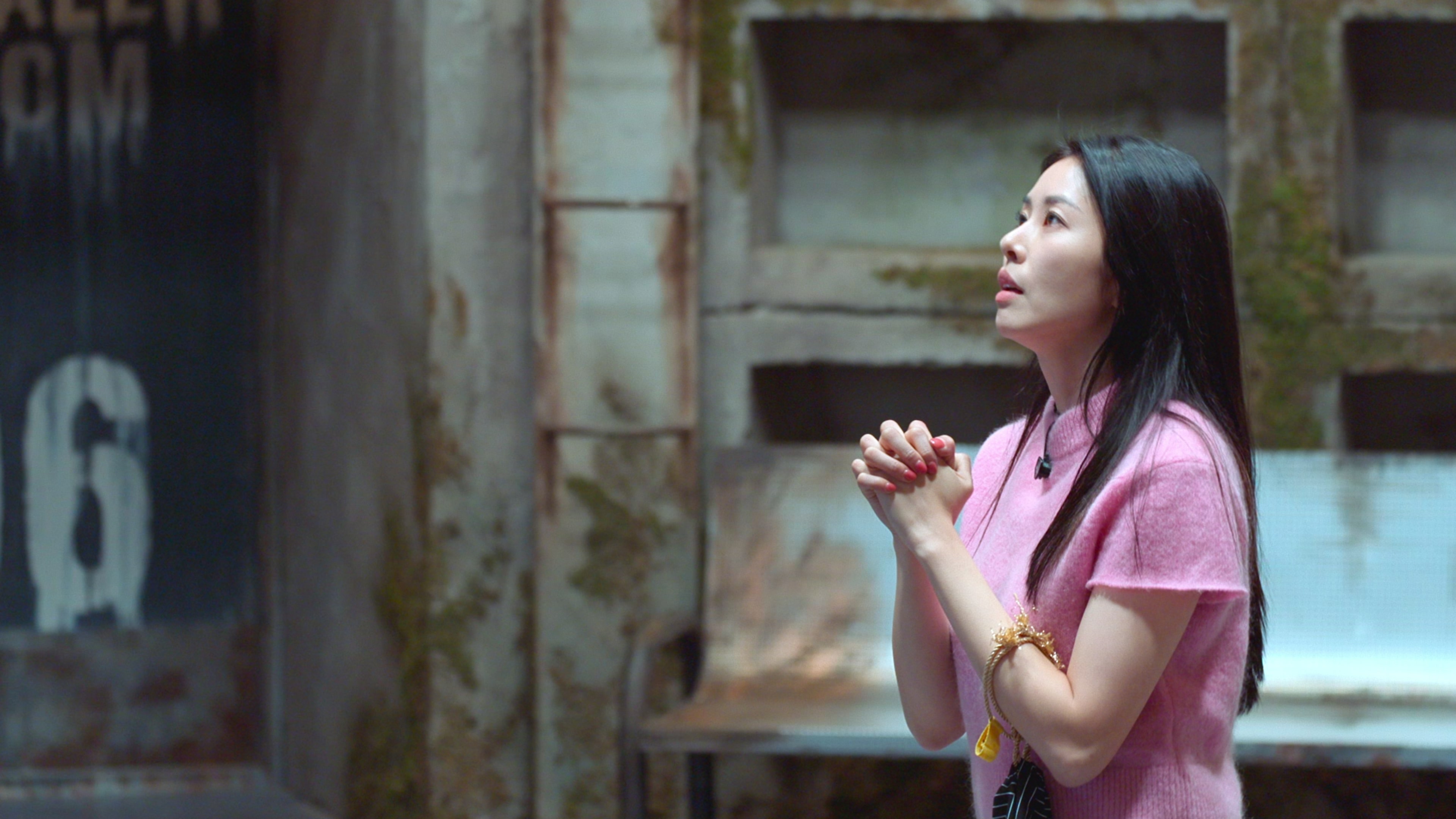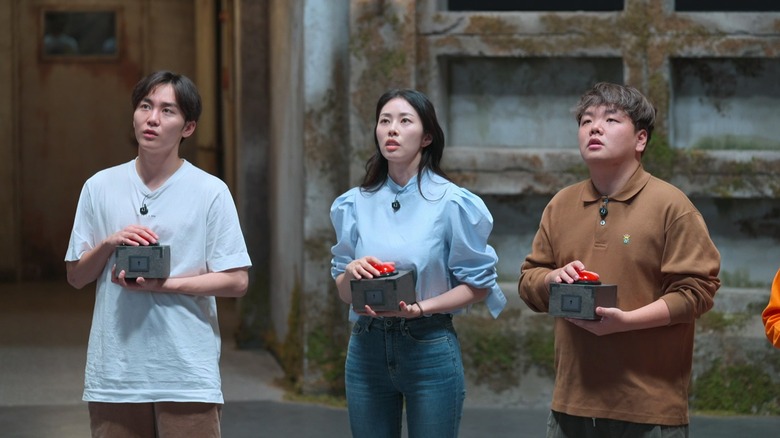In The Devil's Plan On Netflix, 12 Players Face Off In A Series Of Games, And I'm So Addicted
The Netflix series that I'm currently unable to tear myself away from caught me completely by surprise. It's the streamer's new Korean reality competition series The Devil's Plan, in which 12 contestants — including poker players, gamers, actors, and even one K-pop idol — live together in a swanky house while trying to outwit each other in a series of maddeningly complicated games. In addition to the games, they also collect and trade gold pieces; form alliances; and work toward building up a pot of money that one winner will eventually go home with.
Have I mentioned yet that the series of games they play as The Devil's Plan progresses are ridiculously complex? Let's look at just one example, a game the show calls "Fragments of Memory."
A giant picture is unfolded and presented to the players. They have 20 minutes to huddle over it and study the details. It's a scene in a hospital, and the players are meant to zero in on the tiniest nuances. What day is it? The calendar says the 27th ... wait a minute, according to this clock, the surgery in this room over here has already been going on so long that two days have elapsed. Guys, look at this wall of department head names, they'll probably ask us something from that that. Look at what she's holding in her hands. Look at colors of the employees uniforms (you get the idea).


Okay, now time is up. The players are sent away to a separate room. One by one, they come back into the main area to answer 10 questions about that picture. If the player gets the question correct, they keep going and answer the next question. If the player doesn't know the answer, they can pass ... but they're then moved off to a separate room, out of contention, and a new player is brought in. If all 10 questions are answered correctly, 50 million Korean won (around $37,000) is added to the pot. If they answer just a single question incorrectly ... no money at all.
Whoever designed these games in The Devil's Plan, you come to realize, is fiendishly clever. As I noted above, in "Fragments of Memory" players realize that there's no point in taking a stab at a question that they're not sure about, when they can just pass with no consequence. Except ... if too many players pass, that leaves fewer players to try and guess the remaining questions correctly. And lest all this sound a little wonkish, believe me — give The Devil's Plan a try, and soon enough you'll find yourself caught up in the drama and screaming at the TV like you're watching a horror movie in a theater ("Don't do it!" "Are you kidding me??" "Why?!?!").

Examples of other games include a "rules race," where players move game pieces around a giant board, and the first one to cross the finish line wins. The catch: The pieces move according to rules that the players themselves created. Some of the rules were meant to serve as countermeasures, while other rules simply supercharge a player's own game. In another turn-based game, meanwhile, players have to figure out who among them has been designated a "terrorist" and who is an "ordinary citizen," and to do so before the "terrorists" have "killed" everyone.
Two kinds of matches take place each day: A prize match, where players compete for gold pieces, and a main match — the point of which is to eliminate a player. And honestly, there's not much else to say about The Devil's Plan, other than reiterating that this is a Korean series. Which, come to think of it, seems to be pretty much the only mark of 100% guaranteed quality that seems to exist on Netflix anymore.
